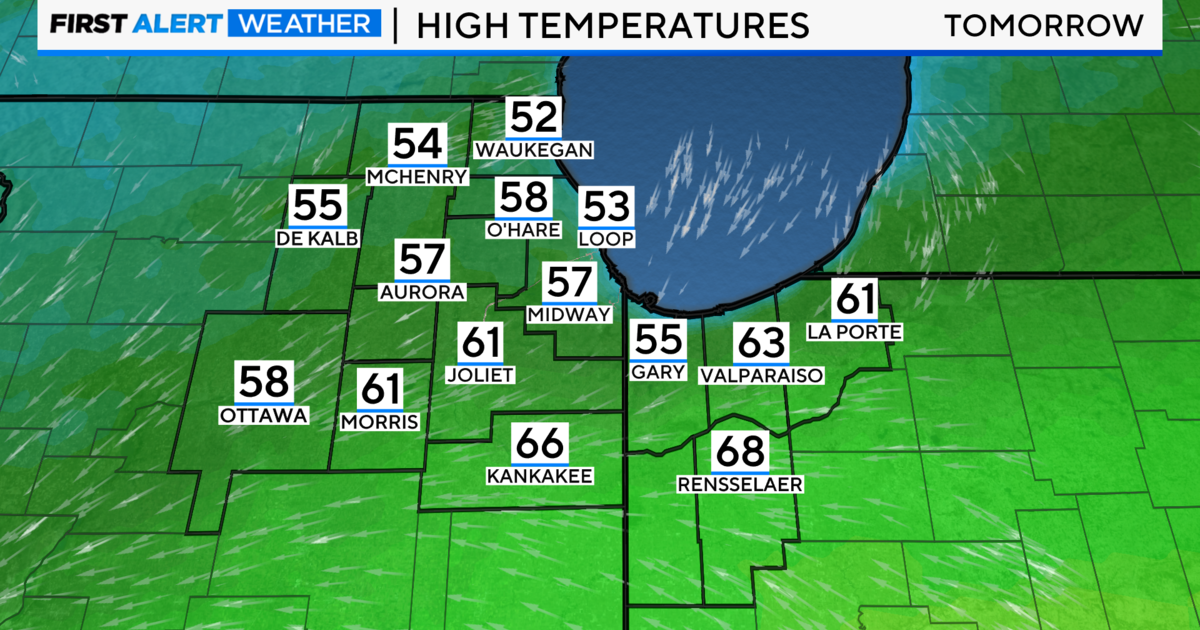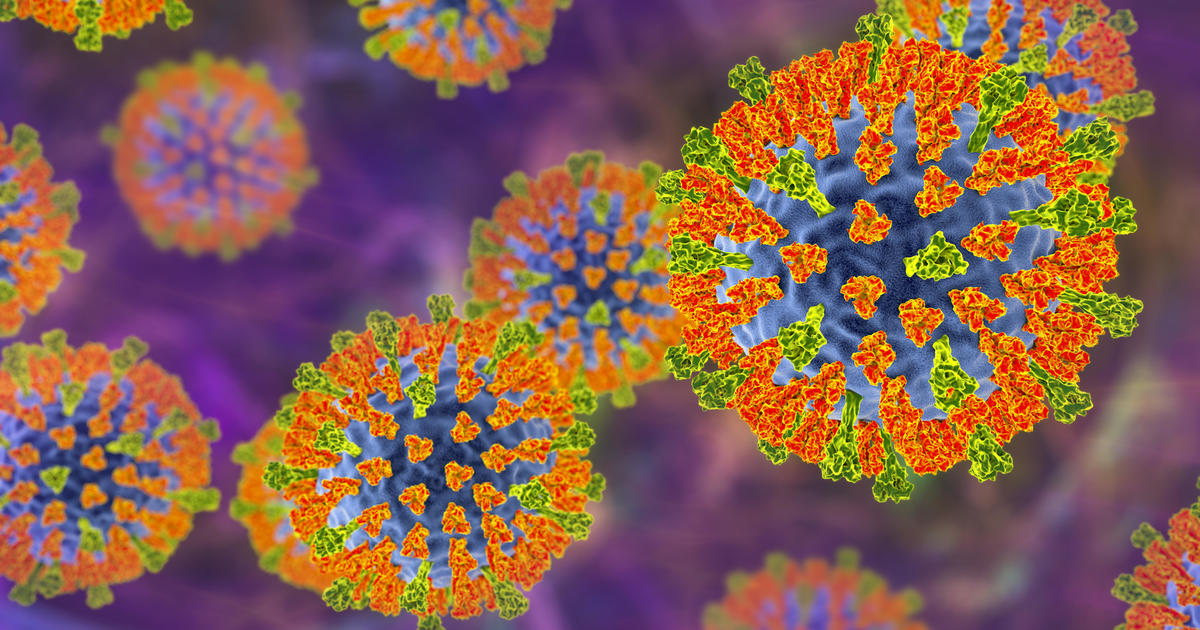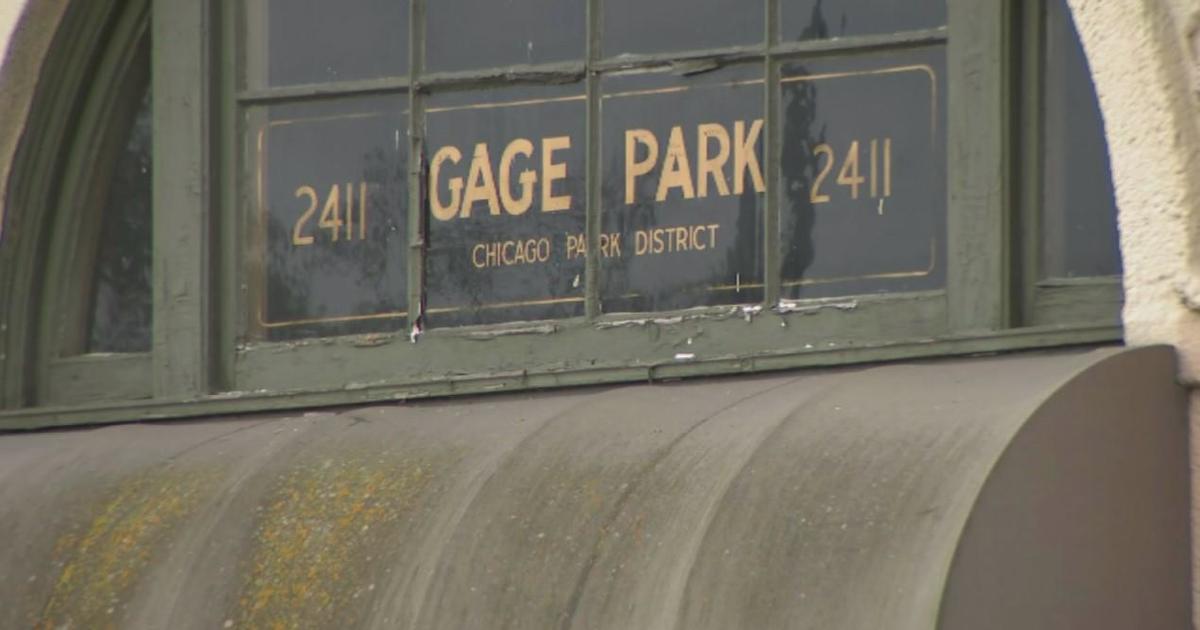Arwady On Chicago COVID Cases: We Are Moving In The Wrong Direction, Lolla Attendees Should Take Precautions
CHICAGO (CBS) -- Chicago's top doctor said the number of COVID-19 cases in the city are not alarming, but it may not stay in that range for long.
Dr. Allison Arwady, the head of the Chicago Department of Public Health said other states have rising COVID cases, and that could affect those who are traveling this summer.
"Here in Chicago, we remain actually in quite good control for COVID, but that is not the case around the country," Arwady said.
She said the city is averaging 165 COVID-19 cases a day -- up 76% from one week ago -- and the test positivity rate stands at 2.6% and increasing.
"We've really enjoyed these last two months being under 200 cases a day, but for some context, all of last year from the beginning of COVID all the way through, there were only 13 days in the whole year in early June that we were under that 200 case per day mark," Arwady said. "I want people to be concerned but, but I don't want there to be unnecessary panic at this point, I just want to make sure people get vaccinated is the most important thing."
"Overall, we do remain at lower risk, but we are moving in the wrong direction," Arwady added.
Mayor Lori Lightfoot has warned, if Chicago surpasses an average of 200 new cases per day, she would consider reinstating a mask mandate and other COVID-19 restrictions. Arwady said Tuesday all of the city's COVID-19 metrics will be considered when deciding whether to reimpose COVID-19 restrictions.
"When we get over 200, we start certainly watching more closely. We may make some recommendations around people who are older, or have underlying conditions," Arwady said. "My feeling is, we want to make sure if we are moving to particularly a mandate around masking again, even for people who are unvaccinated, I want to do that based on our local data, and our local risk, and I want to do it at a time where really the risk is significantly higher. At this point, luckily it remains in that lower risk and so I wouldn't be surprised if we get there. We may."
Meantime, with Lollapalooza, performers set to take the stage as thousands gather in Grant Park in just two days, Lightfoot has said there are no plans to cancel the Lollapalooza festival, despite a rising number of COVID cases.
When Lollapalooza was first announced for this year, the city and organizers said ticket holders must either show proof they've been fully vaccinated or proof of a negative COVID test within 24 hours of attending the festival. Now, the testing requirement has changed to a more lenient 72-hour window.
The four-day music festival typically draws 100,000 fans a day.
Arwady said she is not concerned that Lollapalooza will be a super-spreader event, adding that organizers are taking important precautions that other events and music festivals are not.
"The folks who put on Lollapalooza are taking this extremely seriously," Arwaddy said. "Making sure that all of their backstage workers are vaccinated, and ensuring that the ticket takers are tested; and have really gone, I think, above and beyond and particularly where you compare this to a lot of other festivals around the country."
She added "I mean if you look at Summerfest, for example which is the largest music festival scheduled in Milwaukee. (There are) no COVID protocols in place of any kind. I would not feel comfortable moving ahead with Lollapalooza without COVID protocols in place. I don't think I would feel comfortable if this were an indoor event, either."
"I'm not recommending testing after this event and for people who are who are even not vaccinated. I'm not recommending universal testing. I would ask for anybody who attends Lollapalooza but also for anybody in Chicago, that if you are getting symptoms of what could be COVID, we really want you to get a test," Arwady said.
She added that people should just not attend Lollapalooza if they think they may have COVID symptoms.
"Don't attend Lolla. Really, don't attend if you develop any symptoms of COVID-19 and you haven't taken a test, even if you're fully vaccinated," Arwady said.
Arwady said if you do go, there are ways to minimize exposure to COVID-19.
"Remember to wash your hands, or use a hand sanitizer. Limit consumption of substances, especially if you're not sure what they are, and consuming alcohol that can make you less likely to follow COVID measures," she said.
The head of the CDPH said with a possible mask mandate on the way, Arwady said while Chicago is in a good place, that can change.
"If we are moving to particularly a mandate around masking again, even for people who are unvaccinated, I want to do that based on our local data and our local risk, and I want to do it at a time where really the risk is significantly higher," Arwady said. "It remains in that lower risk so I wouldn't be surprised if we get there. We may."
The Centers for Disease Control and Prevention revised its mask guidance Tuesday afternoon, saying fully vaccinated Americans should wear masks indoors in communities where there is substantial or high transmission, according to a federal official.
Arwady said for Chicago, the city is in a lower risk category and the city will make adjustments if numbers increase.
"My feeling is we want to make sure if we are moving to, particularly a mandate around masking again, even for people who are vaccinated, I want to do that based on our local data and our local risk, and I want to do it at a time where really the risk is significantly higher," she said.
She emphasized that the CDC's information is not because the vaccines are not working.
"It just has to do with where there are a lot of people not vaccinated, there's more opportunity for that to spread," Arwady said. "Anybody who's got a concern, wear a mask I encourage you to do it."
Nine more states have been added to Chicago's COVID-19 travel advisory, even as the U.S. Centers for Disease Control and Prevention is expected to revise its mask guidance, and recommend that some vaccinated people wear masks indoors again.
But the Illinois Department of Public Health (IDPH) said it is "fully adopting updated Centers for Disease Control and Prevention (CDC) masking recommendations to protect against COVID-19 and the Delta variant."
According to the CDC, everyone, including those who are vaccinated, wear a mask in public indoor settings in areas with substantial and high transmission. The agency is also recommending universal indoor masking for all teachers, staff, students and visitors to K-12 schools, regardless of vaccination status.
"While data continues to show the effectiveness of the three COVID-19 vaccines currently authorized in the U.S., including against the Delta variant, we are still seeing the virus rapidly spread among the unvaccinated," said IDPH Director Dr. Ngozi Ezike. "Cases and hospitalizations due to COVID-19 both continue to increase, overwhelmingly among the unvaccinated, but the risk is greater for everyone if we do not stop the ongoing spread of the virus and the Delta variant."



